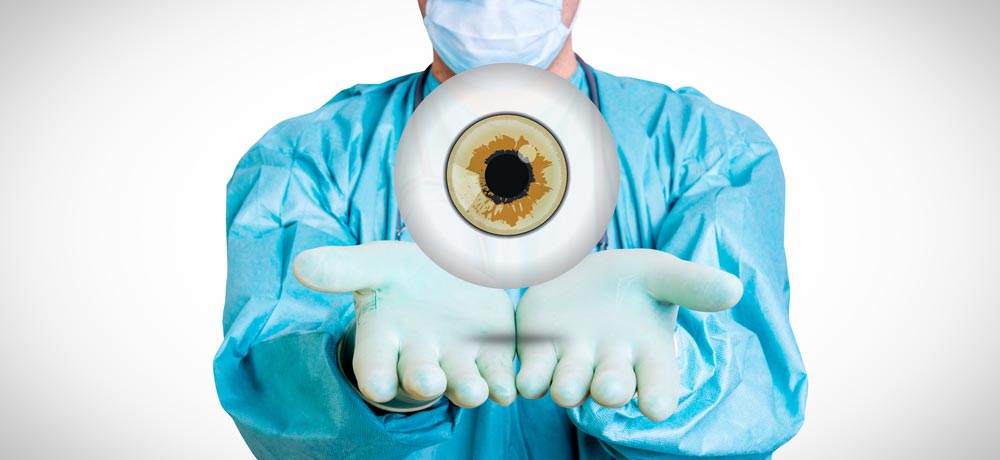Eye Facility in Andalusia: Premier Solutions for Vision Treatment
Eye Facility in Andalusia: Premier Solutions for Vision Treatment
Blog Article
Is Refractive Surgical Procedure Right for You? Factors to Consider for Better Eyecare
In the world of eye care, the decision to go through refractive surgical treatment is a crucial one that requires thoughtful factor to consider. As people look for clarity and flexibility from the constraints of corrective lenses, numerous aspects enter play when identifying the viability of such a procedure. From the intricacies of one's ocular wellness to the intricacies of everyday habits and individual assumptions, each aspect holds significance in the broader landscape of refractive surgery candidacy. By reviewing these crucial elements with treatment and accuracy, a clearer path towards educated decision-making emerges.
Eye Health Analysis
When thinking about refractive surgical treatment, a detailed eye health evaluation is important to examine the viability of the treatment for each and every person. neurologist andalusia. This analysis includes a series of tests and exams conducted by an eye care professional to determine the general health and wellness of the eyes, the presence of any underlying conditions, and the security of the refractive mistake
During the examination, various elements are considered, such as the individual's case history, existing eye prescription, corneal density, pupil dimension, and tear movie quality. These assessments help to identify any kind of contraindications to refractive surgical treatment, such as corneal problems, cataracts, or neglected eye infections. In addition, the assessment aids to take care of client expectations pertaining to the possible outcomes of the surgery based upon their distinct eye attributes.
Ultimately, the eye health examination is important in guaranteeing the security and efficiency of refractive surgery, as it offers important insights right into the person's eye wellness status and helps identify the most suitable therapy choices for attaining optimum aesthetic outcomes. (eye doctors in andalusia)
Lifestyle Analysis
A detailed way of living evaluation is integral in identifying the viability of refractive surgical treatment for a person's visual adjustment demands. Lifestyle factors such as occupation, hobbies, and everyday activities play an essential duty in the decision-making procedure regarding refractive surgical treatment.
In addition, way of living behaviors such as sports involvement, outdoor tasks, or even skincare routines can influence the healing procedure and total success of refractive surgical treatment. By conducting a thorough way of life analysis, eye treatment experts can customize their suggestions and treatment plans to meet the one-of-a-kind demands of each patient, inevitably leading to improved visual end results and fulfillment.
Assumption Positioning

Patients require to comprehend that while several individuals attain 20/20 vision or better complying with refractive surgery, some might still require glasses for specific tasks like analysis or driving at night. Managing these expectations assists stop frustration and discontentment post-surgery, leading to a much more favorable total experience for the patient.
Threat Analysis

Factors that might raise the threat of issues include age, certain medical problems like autoimmune diseases, unstable vision prescription, slim corneas, and impractical person expectations. Additionally, picking a skilled and skilled cosmetic surgeon, following pre and post-operative care directions vigilantly, and divulging any type of relevant clinical background can assist alleviate dangers.
To minimize the probability of problems, eye doctors carry out comprehensive pre-operative assessments to determine any contraindications to surgical procedure. They also go over the possible risks and advantages with clients during the examination procedure. By participating in open interaction and shared decision-making, both the individual and the eye doctor can function with each other to establish if refractive surgical procedure top article is the appropriate selection based upon specific risk profiles and desired outcomes.
Consultation Importance
Considering the critical role of informed decision-making in analyzing dangers and possible issues in refractive surgical treatment, the examination process holds significant relevance in leading individuals towards optimal outcomes. Throughout the examination, the ophthalmologist evaluates the person's eye wellness, refractive errors, and overall viability for surgical treatment. This initial analysis is vital in figuring out the most ideal procedure for each person, thinking about variables such as corneal density, pupil size, and existing eye problems.
Furthermore, the appointment offers as an opportunity for people to review their assumptions, concerns, and you can try these out any kind of questions they might have concerning the surgical procedure. Clear communication in between the patient and the doctor is necessary to guarantee practical expectations and a thorough understanding of the prospective threats and benefits entailed.
Additionally, the examination permits the cosmetic surgeon to clarify the different surgical alternatives available, their respective end results, and the post-operative treatment required. This detailed conversation empowers clients to make educated decisions about their eye care, bring about far better fulfillment and end results post-surgery.
Conclusion
To conclude, people considering refractive surgical treatment must undertake a comprehensive eye health and wellness examination, assess their lifestyle behaviors, straighten their assumptions with prospective results, evaluate the associated risks, and focus on assessments with eye treatment experts. These aspects play a critical role in identifying the suitability of refractive surgical treatment for each person, making certain optimum outcomes and complete satisfaction with the procedure.
People taking into consideration refractive surgical treatment commonly have high assumptions concerning the results, about his expecting ideal vision without the requirement for glasses or contact lenses. While refractive surgery can considerably improve vision and lower dependence on visual aids, it is important for people to understand that results may differ based on private elements such as the level of refractive mistake, corneal thickness, and total eye wellness.
By involving in open interaction and shared decision-making, both the ophthalmologist and the person can function with each other to figure out if refractive surgical treatment is the ideal selection based on individual danger profiles and desired end results.
Thinking about the vital role of informed decision-making in assessing threats and possible problems in refractive surgery, the appointment procedure holds considerable value in guiding people towards optimum results. During the appointment, the eye doctor evaluates the person's eye health and wellness, refractive mistakes, and total viability for surgical procedure.
Report this page